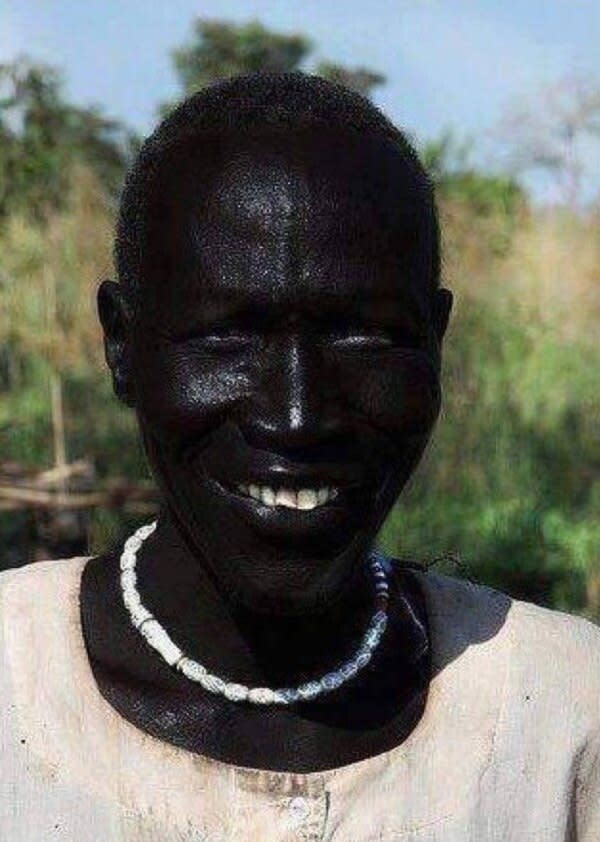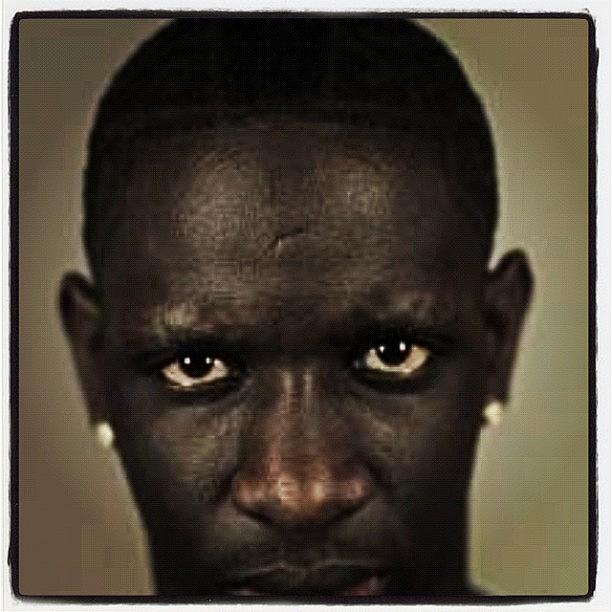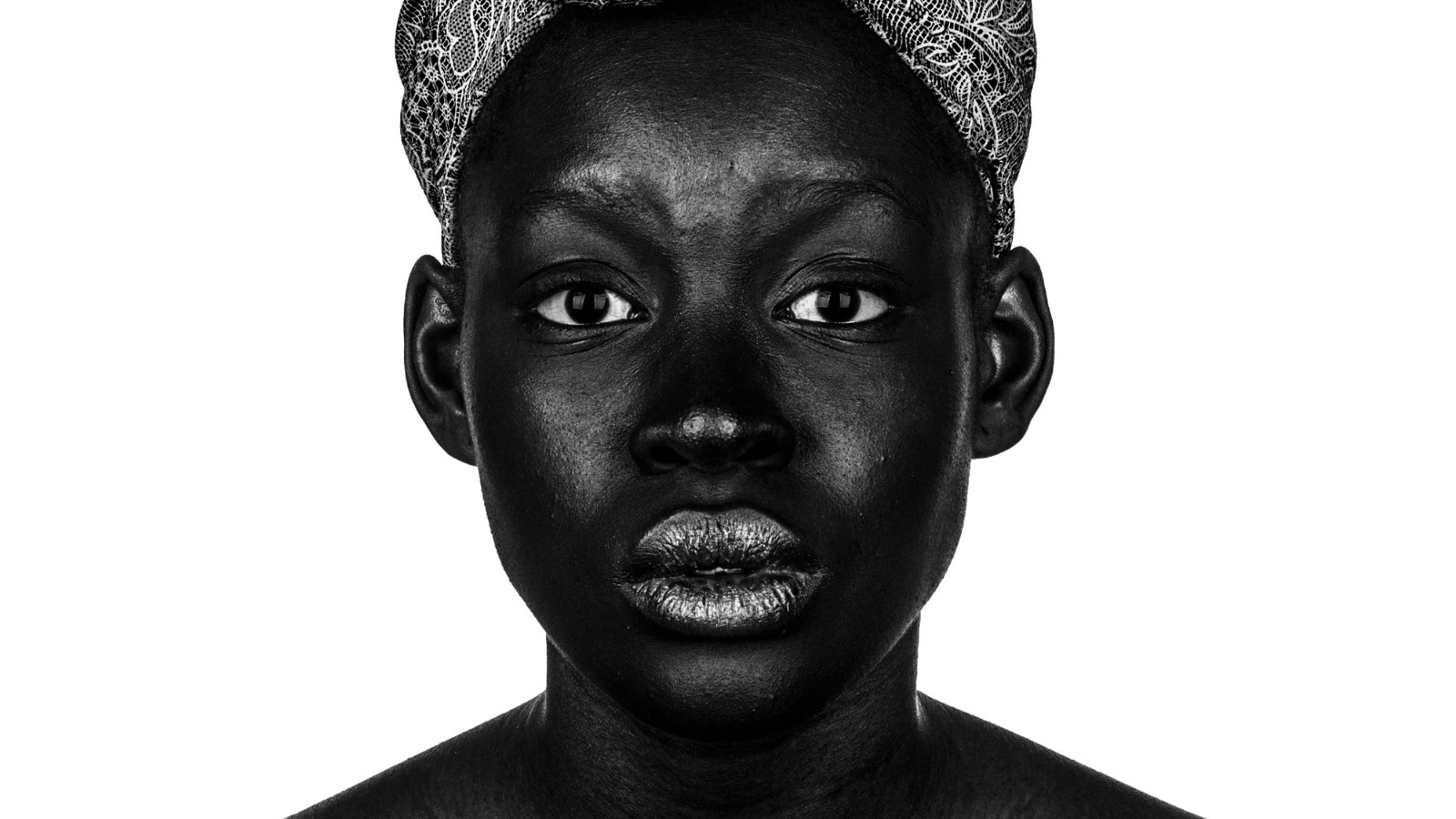Exploring The "Blackest Person In The World" Claim: What The Internet Says
The question of who might be considered the "blackest person in the world" has, in fact, really captured the attention of many people across the globe. This particular inquiry isn't just about how someone looks, it also touches upon big ideas like identity, culture, and even science. It really shows how curious we are about human diversity and the unique qualities each person brings to the world. So, people often wonder about this, and the internet, too, has become a place where such discussions happen quite a lot.
As a matter of fact, pictures of an African man went viral after people around the world claimed him to be the darkest man on Earth. This kind of widespread sharing and discussion, you know, just highlights a general fascination with extreme human traits. It also brings up interesting conversations about how we perceive and talk about skin color. People are always, in a way, looking for something unique, something that stands out, and this topic definitely fits that bill.
There are over 7.8 billion people in the world, and everyone, actually, sees skin color in their own way. But no matter what shade of skin we have, whether it's light or dark, it's all beautiful. This point is very important to remember as we look into the claims and discussions surrounding the "blackest person in the world." It’s about celebrating the rich spectrum of human appearance, and that, too, is a wonderful thing.
- What Does Body Count Mean
- Business Class Vs First Class
- How To Say I Love You In French
- Sophie Rain Spiderman Vid
- How Do You Spell
Table of Contents
- The Quest for the "Blackest Person in the World"
- Candidates for the Title
- Skin Tone, Science, and Society
- Frequently Asked Questions
- Concluding Thoughts
The Quest for the "Blackest Person in the World"
The idea of identifying the "blackest person in the world" has really become a topic of discussion online. People, you know, share images and stories, and these often spread very quickly. This interest, in some respects, comes from a natural human curiosity about extremes. We often want to know who is the tallest, the fastest, or, in this case, who has skin with the most darkness.
It's a conversation that, actually, pops up quite often in various online spaces. The internet provides a platform for people to share their thoughts and observations. This leads to many different opinions and, you know, sometimes strong feelings about what constitutes beauty and what these claims really mean. It’s a very active area of discussion, especially on social media platforms.
Viral Claims and Public Interest
A picture of an African man, for instance, went viral. People around the world, as a matter of fact, claimed him to be the darkest man on Earth. This kind of event shows how quickly information, or perhaps even speculation, can travel. The image gained a lot of attention, and many individuals shared it, sparking conversations in various communities. This, too, happens quite often with things that seem out of the ordinary.
- Kendrick Lamar Mustard Song
- Sophiexyz Spiderman
- Brandi Passante Pics
- Boo Did I Scare You Im A Job Application
- Somber Smithing Stone 6
The public interest in such claims is, you know, quite high. People are often drawn to stories that highlight human uniqueness. When someone appears to possess a characteristic in an extreme way, it just naturally draws curiosity. This curiosity can then turn into a wider discussion about what it means to be the "blackest person in the world." It’s a topic that, you know, gets people talking.
These viral moments, basically, serve as a way for people to engage with topics of identity and appearance. They create a space for individuals to share their views on beauty, race, and human variation. It's really interesting to see how these discussions unfold. And, you know, sometimes they can be quite thoughtful and insightful, too.
Why No Official Record Exists
Even though there is a lot of talk, there is no Guinness World Record for the "blackest person in the world." This is an important detail to understand. The Guinness World Records, as a matter of fact, does not monitor records for skin tone. They have specific guidelines about what kinds of records they will track and recognize. Skin color, you know, just isn't one of them.
The reason for this policy is, basically, quite clear. Measuring skin tone in a way that would allow for an official record is very complex. There are many factors that influence how skin appears, and, you know, it's not a simple thing to quantify. This leads to difficulties in establishing a fair and consistent measurement system for such a record. It’s a bit like trying to measure something that is constantly changing.
Furthermore, the idea of ranking people by skin tone, you know, raises some ethical questions. Guinness World Records likely avoids categories that could promote harmful comparisons or, in some respects, reinforce negative stereotypes. Their focus is usually on achievements or physical attributes that are measurable and, basically, not open to misinterpretation in a negative way. So, there is no official recognition, and that, too, is a deliberate choice.
Candidates for the Title
Even without an official Guinness record, people on the internet have, in fact, found some individuals they believe deserve the title of "blackest person in the world." These individuals have gained attention for their deep, rich skin tones. The online community, you know, often highlights them as examples of striking beauty. It's a way for people to celebrate what they see as exceptional human traits.
These candidates, basically, become figures in a wider discussion about skin color and appearance. Their images are shared, and their stories are told, often with a lot of admiration. It shows how people, in a way, are drawn to uniqueness and how they appreciate diverse forms of beauty. So, while there's no official title, there are definitely people who are often mentioned.
Nyakim Gatwech: A Beacon of Beauty
Nyakim Gatwech, who is a South Sudanese model, has been, you know, dubbed for the title by many. She has gained a lot of recognition for her very deep skin tone. Her presence in the fashion world and on social media has made her a prominent figure. Many people see her as a symbol of beauty and strength. This, too, is a powerful message.
Nyakim's story, basically, highlights the importance of self-acceptance and celebrating one's unique features. She has, as a matter of fact, spoken out about her experiences and how she has learned to love her skin. Her journey, you know, inspires many others to embrace their own appearance. It's a powerful example of confidence and grace. Learn more about Nyakim Gatwech on our site.
Her pictures, you know, often go viral, and they spark conversations about beauty standards. Nyakim's visibility helps to challenge traditional ideas of what is considered beautiful. She represents a different kind of beauty, one that is very rich and, in some respects, truly striking. So, she is often mentioned when this topic comes up, and that is, you know, for good reason.
Felix Miner: A Scientific Measurement
Felix Miner, who is from the Democratic Republic of the Congo, also gained attention. His skin was, as a matter of fact, measured to reflect minimal light. The measurement showed around 0.5% light reflection. This particular finding led to him being recognized by some as a candidate for the title. It was a more scientific approach to the discussion, you know.
The measurement of light reflection, basically, offers a different way to think about skin darkness. It moves beyond just visual observation and brings in a technical aspect. This kind of data, you know, provides a tangible point of reference for discussions about skin tone. It’s a very specific piece of information that contributes to the conversation. And, you know, it made people really take notice.
His story, in a way, shows how different methods can be used to discuss and even quantify human traits. While the Guinness World Records doesn't track skin tone, the fact that Felix Miner's skin was measured for light reflection just shows a scientific interest in the topic. It adds another layer to the ongoing public discussion. And that, too, is quite interesting.
Skin Tone, Science, and Society
The question of the "blackest person in the world" isn't just about individual people. It also brings up wider discussions about skin tone, science, and society. This article, in fact, looks into whether calling someone the "blackest person in the world" is scientifically valid. It also explores the long history of racial constructs. These are, you know, very important aspects to consider.
Understanding these broader contexts helps us to approach the topic with more knowledge and respect. It's about looking beyond just the surface and, you know, thinking about the deeper meanings. The way we talk about skin color has, basically, a lot of history and science behind it. So, it's a good idea to consider all of these different angles.
The Science Behind Skin Color
Skin color, in fact, is determined by melanin. Melanin is a pigment produced by special cells in our skin. The amount and type of melanin a person has, you know, dictates their skin tone. People with more melanin tend to have darker skin. This is a basic scientific fact that helps us understand human diversity. It’s a very natural process, basically.
Genetics, as a matter of fact, plays a very big role in how much melanin a person produces. Our ancestors' origins, you know, often influence the amount of melanin we inherit. This is why people from certain parts of the world tend to have darker skin tones. It's an adaptation to sun exposure over many generations. So, it’s all connected to our biological heritage.
The variation in skin color across the human population is, in some respects, a beautiful thing. It reflects our species' ability to adapt to different environments around the globe. Every shade of skin, you know, has its own unique qualities. The science behind it all just shows how wonderfully diverse we are as humans. And that, too, is a point worth celebrating.
Understanding Racial Constructs
The article also explores the long history of racial constructs. Race, in fact, is often a social construct. This means that ideas about race are created by society, not by biology alone. Throughout history, people have, you know, grouped others based on physical traits, like skin color. These groupings often led to social hierarchies and, basically, different treatments of people.
These constructs have, in a way, shaped how we view and talk about skin color. They have influenced perceptions of beauty, identity, and belonging. It's important to recognize that these ideas are not fixed or natural. They are, you know, products of human societies and their histories. Understanding this helps us to challenge harmful stereotypes. And that, too, is a very important step.
Thinking about skin color outside of these old constructs allows for a more open and respectful conversation. It helps us to appreciate individual differences without attaching negative or limiting labels. This shift in thinking, basically, encourages a more inclusive view of humanity. It’s about seeing people for who they are, rather than through outdated ideas. And that, you know, is a good thing for everyone. You can find more information about the history of racial constructs on our site.
Beauty in Every Shade
The message that no matter what shade of skin we have, whether light or dark, it’s all beautiful, is very important. This idea, you know, promotes a positive view of all human appearances. It challenges the narrow beauty standards that sometimes exist in society. Every person's skin color, basically, holds its own kind of beauty. It's a celebration of human diversity.
Embracing this perspective means recognizing the value and attractiveness in every skin tone. It helps to build self-esteem and, in some respects, encourages acceptance among people. When we appreciate all shades, we create a more inclusive and welcoming world. This, too, is a goal worth striving for. It’s about seeing the richness in everyone.
This message also helps to counter the negative impacts of colorism, which is, basically, discrimination based on skin tone. By affirming that all skin is beautiful, we work towards a society where everyone feels valued. It's a simple but powerful idea that, you know, can make a big difference. So, celebrating every shade is, in fact, a very good thing to do.
Frequently Asked Questions
People often have questions about this topic, so we'll address a few common ones here.
Is there a Guinness World Record for the blackest person in the world?
No, there is not. The Guinness World Records, you know, does not monitor records for skin tone. This is because measuring skin color for such a record is very complex, and it also raises some ethical considerations. So, basically, you won't find an official entry for this particular claim.
Why do people search for the "blackest person in the world"?
People, you know, often search for this out of curiosity about human extremes and diversity. It's a natural human tendency to be interested in unique characteristics. The question also, in a way, touches on discussions about identity, culture, and beauty standards. So, it's a topic that, basically, sparks a lot of interest online.
Is calling someone the "blackest person in the world" scientifically valid?
The article looks into whether calling someone the "blackest person in the world" is scientifically valid. While skin darkness can be measured, like Felix Miner's light reflection, assigning a definitive "blackest" title is, you know, very complex. Skin color is a spectrum, and it's influenced by many factors. So, basically, it's not a simple scientific label to apply.
Concluding Thoughts
The discussion around the "blackest person in the world" is, you know, quite a fascinating one. It shows how people are interested in human diversity and unique characteristics. While there is no official record, the online community has, in fact, highlighted individuals like Nyakim Gatwech and Felix Miner. Their stories, basically, bring important conversations to the forefront. These conversations are about identity, beauty, and the science of skin color.
It’s important to remember that all skin tones are beautiful, and that, too, is a very powerful message. This perspective helps us to appreciate the wide spectrum of human appearance. It encourages respect for everyone, regardless of their skin shade. The journey to understand and celebrate human diversity is, you know, an ongoing one. So, let’s keep these discussions going with openness and respect for all.
- What Does Asl Mean
- What Does Nvm Mean
- Niece In Spanish Language
- Goob From Meet The Robinsons
- Dress To Impress Creator Gigi

Who Is The Blackest Person In The World?

Blackest Man Alive From Psg- Heskey Photograph by Yadiel Solis

Being Nigerian in America - CNN